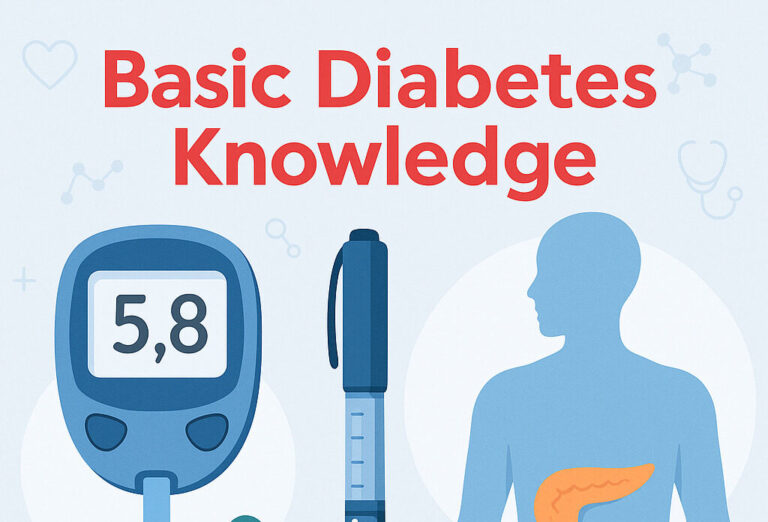Proven Alzheimer’s Prevention Strategies for Type 3 Diabetes
Discover proven Alzheimer’s prevention strategies for Type 3 diabetes. Unlock the power of lifestyle habits and cardiovascular health to reduce risk.
Lifestyle Habits for Brain Health

Physical Activity
Moving your body does wonders—maybe even keeps Alzheimer’s at bay. Breaking a sweat now and then gets the blood flowing, boosts that brain part called the hippocampus, and sparks new brain cell growth. With regular exercise, you’re not just keeping fit; you’re potentially dodging dementia while helping out your diabetes.
- Folks who move regularly are up to 20% less likely to fall into the trap of dementia, according to those smarty pants at Alzheimer’s Society.
- On the flip side, the couch potatoes have double the risk of entering Alzheimer’s territory compared to their more lively counterparts (Alzheimer’s Society).
Diabetes Management
Keeping your diabetes in check isn’t just about your waistline or heart. Got unsteady blood sugar? That could quicken brain aging. So, keeping those sugar levels steady might just be part of keeping your noggin ticking fine.
For details on how diabetes and Alzheimer’s could be in cahoots, dive into our full guide.
Blood Pressure Control
Your brain loves steady blood pressure. Let it go haywire, and you risk brain blood vessel damage, which can squeeze that mental power. Keeping it stable could potentially fend off those unwanted mental shifts.
Hearing Loss Prevention
Turns out, your ears are friends with your brain. Leave hearing issues unchecked, and they might lead you down an isolated path, paving the way for mental slowdowns. However, gadgets like hearing aids can lend a hand, reducing the slide into cognitive decline.
| Keeping Brain Fit | How it Fights Alzheimer’s |
|---|---|
| Stick to Exercise | Cuts risk by 20% |
| Mind Your Blood Pressure | Protects your vessels |
| Don’t Ignore Hearing Issues | Fights off mental decline |
Alcohol and Tobacco Avoidance
Saying “no thanks” to booze and smokes is a wise move for your brain’s longevity. Both can mess with your blood pressure and sugar levels, nudging you closer to Alzheimer’s. Steering clear keeps your thinking sharp and your brain health in check.
For further tips on living smartly with these habits, check out our advice on managing Alzheimer’s when diabetes tags along.
Cardiovascular Health and Alzheimer’s Risk
Keeping your heart in good shape isn’t just about dodging heart attacks—it’s also about steering clear of Alzheimer’s. Here, let’s chat about how paying attention to your ticker can help your noggin, too.
Impact of Cardiovascular Health
Your heart and brain are buddies, and a healthy heart means a happier brain. Lower chances of heart problems also mean you’re less likely to bump into Alzheimer’s later on (NHS UK).
Sitting around too much? Bad news for your brain. Get moving! Being active keeps the risk of Alzheimer’s at bay by boosting blood flow, making your hippocampus (that brain memory center) stronger, and sparking new brain cells over time.
Reducing Alzheimer’s Risk
Want to give Alzheimer’s a run for its money? Here are some down-to-earth strategies, type 3 diabetes/Alzheimer’s prevention tips to boost your heart health and, by extension, protect your grey matter:
- Break a Sweat: Regular exercise isn’t magic, but it sure feels like it! It messes with Alzheimer’s on a cellular level and keeps those pesky inflammation markers down (NCBI). Lace up for a brisk walk or a good jog; even a simple dance-off in your living room revs up blood flow and churns out stuff like BDNF that helps your brain work better.
- Diet Do-Overs: Think Mediterranean—load up on stuff like salmon and nuts. This eats list doesn’t just pump up heart health; it also shores up defenses against memory loss. Add in some omega-3s and antioxidants for that extra brain-loving boost.
- Watch the Pressure: Keep your blood pressure chill so your heart can keep going with the flow. A mix of movement, nutritious meals, and if needed, a chat with your doc about medication can keep things in check.
By zeroing in on these habits, you can do wonders for your heart health and brainpower. For a deeper dive into the role of diabetes in Alzheimer’s, our alzheimer’s and diabetes connection is a must-read. And don’t forget: Keeping those insulin levels steady is a big win for brain health—find more in insulin and brain health.
Mental and Social Stimulation
Mental Engagement Benefits
Keeping your mind busy might just help you dodge dementia and memory thieves like Alzheimer’s. Playing brainy games, solving puzzles, or using brain training apps is like gym for your noggin, keeping memory loss at bay. In a study with more than 2,800 folks over 65, those who tackled brain exercises showed improved skills, holding onto this edge in daily tasks like handling their dough and managing household chores for over five years (WebMD).
Exercising gray matter may build up back-up brain cells and tighten connections between them. Smarter folks can have healthier brains, experts think, and the mental workout from learning stuff might shield your brain by enriching cell connections (WebMD). Toss in some mind-bending activities to slash your chances of meeting dementia.
| Activity | Description | Benefits |
|---|---|---|
| Puzzles | Crosswords, Sudoku | Sharpens your noggin |
| Brain Training | Apps, games | Boosts brain power |
| Learning New Skills | Languages, music | Keeps brain flexible |
Social Connections and Dementia Risk
Staying connected isn’t just good for the soul but for your brain, too. Being socially busy throughout your life might fend off dementia sneaking up on you. Hanging out with friends or joining in social activities gives emotional support, busts stress, and gives your brain a friendly boost.
Dive into group hangouts, sign up for clubs, or nurture close bonds with loved ones to keep your social net strong. Social buzz doesn’t just liven up your days; it also perks up your mental health.
| Social Activity | Description | Benefits |
|---|---|---|
| Group Activities | Clubs, organizations | Boosts social time |
| Personal Relationships | Family, friends | Offers support and care |
| Community Engagement | Volunteering, helping out | Cuts down stress, boosts brain |
Mixing mental and social activities is a win-win in keeping Alzheimer’s at arm’s length. Couple them with other savvy prevention tips to fortify against brain fog.
Role of Exercise in Keeping Alzheimer’s at Bay
Exercise isn’t just for toning muscles—it’s a top player in keeping Alzheimer’s disease at arm’s length, especially for those with that sneaky Type 3 diabetes. Once you get the link between breaking a sweat and warding off Alzheimer’s, you’re halfway to picking up habits that could keep this nasty condition at bay.
Couch Potato and Alzheimer’s Love Affair
Being a couch potato can spell trouble—and not just for your waistline. It seriously ups your chances of Alzheimer’s (NCBI). Skipping your daily walk or run narrows the pipes bringing blood to your noggin, shrinks your brain’s memory center (the hippocampus), and hits pause on making new brain cells. Folks wrestling with Type 3 diabetes have it worse; their messed-up insulin game also picks on their brain.
Sweating It Out Works Wonders
Get moving if you want to cut down your chances of dementia and Alzheimer’s by a chunky 45%. Exercise does wonders, boosting brain blood flow, padding out your hippocampus, and firing up the production of shiny new brain cells. Plus, it keeps your body’s engines running smooth, kicking oxidative stress to the curb, which all boils down to staving off Alzheimer’s.
Sweating it out offers perks like:
- Sharper mind
- New brain cell boom
- Bigger hippocampus
- Boosted brain blood flow
- Less oxidative hassle and smoother metabolism
Breaking a Sweat with Alzheimer’s
Putting workouts on the Alzheimer’s treatment roster has shown sweet results. With a trainer at the helm, exercise plans help in day-to-day functioning and calm those agitating symptoms down. Hitting the gym for some solid aerobic activity or amping it up with high-intensity sessions can make a noticeable dent in the symptoms.
| Exercise Type | Perks |
|---|---|
| Aerobics | Sharpens mind and calms neuro buzzes |
| Guided Sessions | Boosts daily living and chills symptoms |
| Serious Workouts | Major symptom ease |
Flipping exercise into part of your daily mantra gives your brain some serious backup.
By making exercise your sidekick, you’re not just dodging Alzheimer’s—you’re giving life a bear hug and upping your living game.
Dietary Factors in Alzheimer’s Prevention
What you eat can have a big say in whether you develop Alzheimer’s, especially if you’re juggling type 3 diabetes. Here’s a look into how munching on Mediterranean foods, getting those omega-3s, and loading up on antioxidants can keep your brain ticking along.
Mediterranean Diet and Brain Health
That Mediterranean diet we keep hearing about—crammed with fruits, veggies, nuts, and olive oil—might have some serious perks for your noggin. It’s all those antioxidants packing a punch, shielding your brain cells from harm. The payoff? Possible dementia risk going down by nearly a quarter. Not too shabby, right? (Alzheimer’s Society).
| Foods | Good Stuff Inside | What’s in it for You? |
|---|---|---|
| Fruits & Veggies | Full of antioxidants | Shields brain cells |
| Nuts & Seeds | Packed with omega-3s | Fights inflammation |
| Olive Oil | Monounsaturated fats galore | Keeps the blood flowin’ smoothly |
Thinking about going the Mediterranean way? Check out more on insulin and brain health to mix it in smartly with your diet game.
Omega-3 Intake and Dementia Risk
Now, omega-3s, beloved by some, might not be the universal superhero. Researchers have been back-and-forth on whether they help dodge dementia. Munching on fish twice a week could slice your risk by almost half! Yet, downing fish oil pills? Eh, not much of a difference.. Early on though, omega-3 supplements could tweak symptoms for the better but not much magic in later stages.
| Study | Source of Omega-3 | What’s the Verdict? |
|---|---|---|
| 2022 Study | Fish oil pills | No change in Alzheimer’s |
| Older Study | Fish twice weekly | 41% cut in dementia risk |
Antioxidants and Dementia Risk
Antioxidants are the brain’s bodyguards, fending off nasty oxidative stress and, possibly, dementia. But, despite the hype, we’re not fully there with the thumbs up that antioxidants will definitely chop down dementia risk (Alzheimer’s Society).
| Antioxidant Source | What’s It Good For | How Solid is the Proof? |
|---|---|---|
| Fruits & Veggies | Cuts back oxidative nasties | Evidence still iffy |
| Nuts & Seeds | Calms inflammation | Mixed reviews |
For a safer dietary path and sharper prevention plans, have a look at our guide on the alzheimer’s and diabetes connection.
Getting a grip on these food factors can help carve out a solid plan against Alzheimer’s, especially if you’re wrangling type 3 diabetes. Tweak these eating habits and roll them into a broader game plan to lower your chance of Alzheimer’s sneaking up on you.
Importance of Mental Stimulation
Brain Exercises for Alzheimer’s Prevention Strategies for Type 3 Diabetes
Got brains? Keep ’em busy! Regular mental workouts can help stack up your reserve supply of brain cells, making them strong and mighty. Imagine flexing those brain muscles with puzzles, crosswords, and maybe even picking up a new hobby, and you’ll be in tip-top shape. These strategies and prevention activities are your secret weapon in fighting off type 3 diabetes and the effects of Alzheimer’s, giving those pesky symptoms the boot (WebMD). Some brain teasers include:
- Puzzles and games
- Reading and writing
- Exploring new skills or hobbies
- Memory challenges
The brain loves a good workout—keep it active and kick Alzheimer’s to the curb.
Impact of Education and Brain Activities
Hit the books, folks! There’s a strong link between hitting the books and a lower risk of Alzheimer’s. More learning means more brain workouts, creating a traffic jam (the good kind) of brain cell connections. So, keep that brain challenged with lifelong learning for a bit of extra brain protection.
Reserve Supply of Brain Cells
Thinking ahead? Building a stash of brain cells is like having superpowers against Alzheimer’s. Strong connections and new brain cell growth make your brain pretty resilient. It’s like building a mental fortress!
Let’s break it down with this handy table of brain exercises and their perks:
| Brain Exercise | Benefit |
|---|---|
| Puzzles and Games | Turbocharges problem-solving skills |
| Learning New Skills | Fires up new cell growth (neurogenesis) |
| Reading and Writing | Keeps cognitive engines running |
| Memory Exercises | Builds rock-solid memory |
For more on how keeping your brain active helps fend off Alzheimer’s, check out our section on neuroprotective effects of insulin. Plus, see how managing Alzheimer’s with diabetes can make a difference.
Image Credit







Leave a Reply